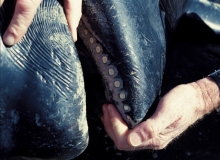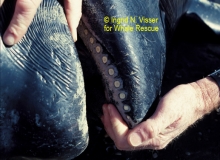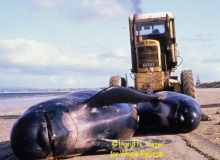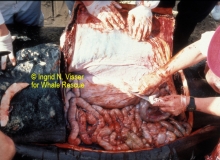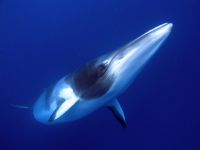You are here: Home →
Rescues →
1993, August 24, Tokerau Beach, Doubtless Bay, Northland
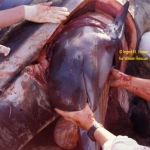
Rescuers were able to save 19 of the stranded pilot whales who came ashore at the gently sloping Tokerau Beach. They were last seen heading out to sea and no individuals were known to restrand. Unfortunately nine died on the beach, but permission was given by the local Māori Iwi for necropsies (animal dissection) to be conducted.
Dr Ingrid N. Visser and Steve Whitehouse conducted necropsies on all nine animals and found one female with a near-full term foetus. The calf was in the ‘breach’ position – in that it was head-first down the birth channel. Whales and dolphins are typically born tail first to enable the tail flukes of the yet unborn calf to unfurl and for the tail to begin flexing. This allows the calf to be better able to immediately swim upon being born. If born head-first it may not be able to swim properly and could encounter trouble with getting to the surface to breathe. It is possible (but by no means proven) that an expectant mother pilot whale could anticipate that the calf was to be born head-first and may have moved into shallow waters.
Rescue Images
Quick Facts
| Name | Minke Whale |
| Image |
|
| Suborder | Mysticeti |
| Family | Balaenopteridae |
| Max. size - Male | 10.2 m (33 ft) |
| Max. size - Female | 9.4 m (31 ft) |
| Calf size | 3 m (10 ft) |
| Max. weight - Male | 10 tons |
| Max. weight - Female | 10 tons |
| Calf weight | 450 kg (1000 lb) |
| Food | krill, small fish, copepods |
| Latin name | Balaenoptera acutorostrata |
| Location |
Doubtless Bay, Northland |
| Latitude |
-34.88435 |
| Longitude |
173.37175 |
| Number of Whales |
28 |
| Number rescued/saved |
19 |
At this rescue
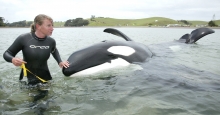
Ingrid has attended numerous mass and individual strandings. She is experienced in sampling and data collection at these events, and in the use of refloatation Rescue Pontoons and other rescue equipment. She has served on the Board and was a trainer for another stranding rescue group.
Read more ››
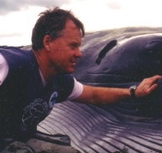
From a background as the NZ Whale Rescue Coordinator and a Fisheries Officer, Steve went on to design and implement both the Marine Mammal Medic (MMM) course, including full procedure manuals and the Whale Rescue Refloatation Pontoon System in the 1980s. Originally designed to train DoC staff and authorities in effective whale rescue techniques, Steve later redeveloped the MMM course for the layperson.
Read more ››
With special thanks to
Thanks to the digger driver for his patience whilst the necropsies were conducted.


